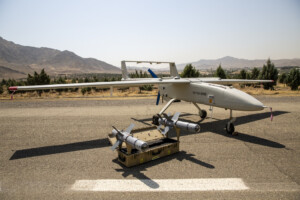US Dollar trading at more than SDG 28 on Sudan’s parallel forex market
The price of the US Dollar has risen above SDG 28 on Sudan’s parallel currency market, in the wake of the introduction of the new customs rate of SDG 18 which came into effect on Tuesday. The price for a greenback is expected to rise further in 2018 amid a shortage of hard currency in Sudan.
The price of the US Dollar has risen above SDG 28 on Sudan’s parallel currency market, in the wake of the introduction of the new customs rate of SDG 18 which came into effect on Tuesday. The price for a greenback is expected to rise further in 2018 amid a shortage of hard currency in Sudan.
Economic analyst and a businessman, Abdelhadi Abdallah, told Radio Dabanga that the statutory increase in the customs price of the US Dollar from SDG 6.7 to SDG 18 will cause rise in the Dollar exchange rate in the parallel market and a significant rise in commodity prices, but at the same time, will remove confusion of investors about the multiplicity of the Dollar exchange rates in the country.
He said that yesterday the exchange rate in the parallel market ranged between SDG 28.5 to SDG 29 and warning of negative effects of the rise in the price of the US Dollar on the prices of imported goods. He said reducing the customs rate on some goods and exempting some of them would reduce the effects.
Regarding the government's liberalisation of wheat prices and flour rise from SDG 220 to SDG 560, he warned of its negative effects on the availability of wheat.
Abdallah explained to Radio Dabanga that the quantities of wheat produced locally do not meet public consumption.
He proposed a five-year plan, including a 20 per cent annual increase in wheat production, coinciding with 20 per cent reduction in imported wheat.
Abdallah warned of a shortage of wheat during the coming period and said that reducing the proportion of imported wheat will have negative effects on the public. He described the approved budget of 2018 as frustrating and below ambition and expressed surprise at the allocation of 70 percent for security and defence, the remarkable decrease in the proportion of services and development.
He said “The budget is not commensurate with the outcome of the dialogue and the formation of the government of national reconciliation. This has disappointed the hopes of citizens.
He said that the increase in electricity tariffs for the productive sector will lead to an increase in commodity prices and threaten the industry.
He pointed to the number of factories that have stopped because of the increase









 and then
and then